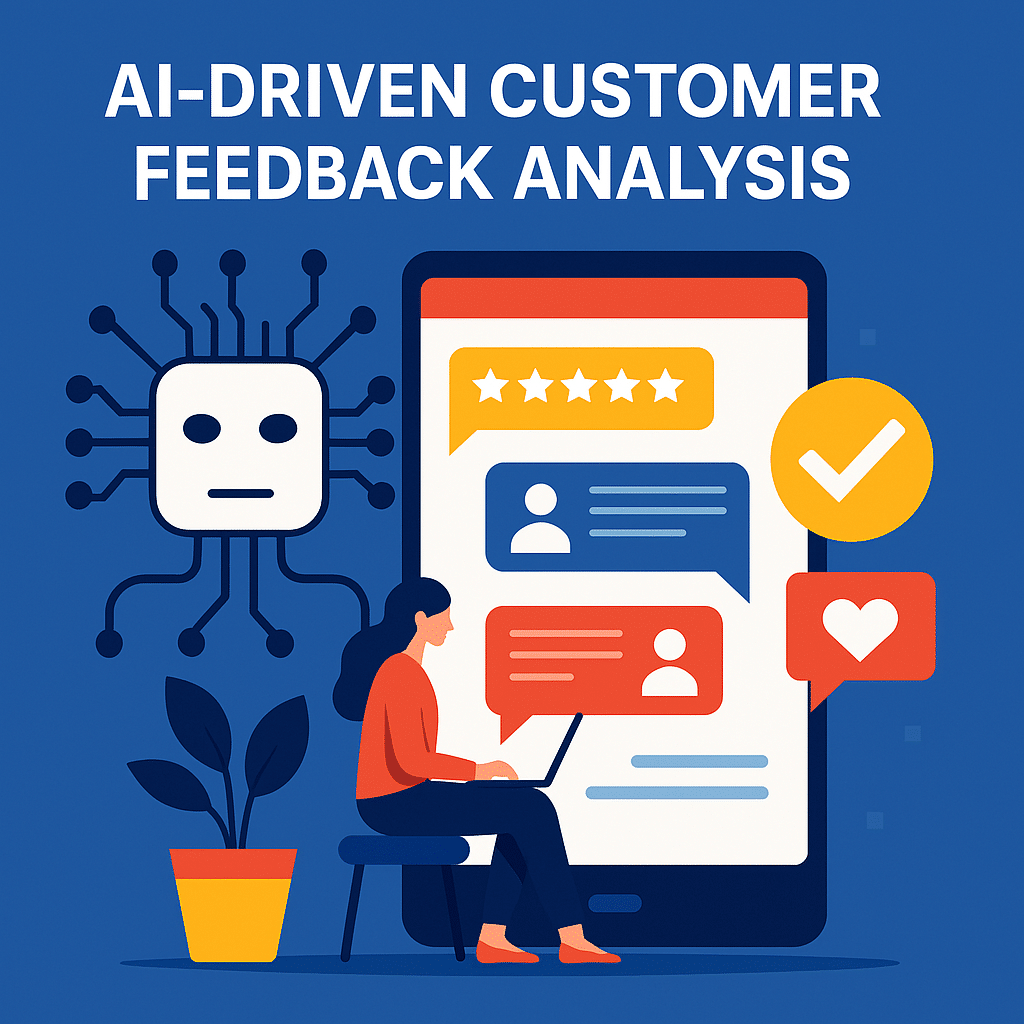Introduction of the AI’s Role in Real-Time
In the digital age, where customer expectations are at an all-time high, businesses must find effective ways to connect with their audience. Personalization at scale has emerged as a critical strategy that allows organizations to tailor their offerings and enhance the customer experience. By leveraging AI technologies, companies can deliver highly personalized interactions that meet the unique needs of their customer base. This article explores the importance of personalization at scale, the AI’s Role in Real-Time in customizing services, and the benefits and challenges associated with implementing these strategies effectively.
What is Personalization at Scale and Why is it Important for Customer Experience?
Understanding the Concept of Personalization at Scale
Personalization at scale is when businesses can tailor their communications, offers, and services to individual customers, yet manage large volumes of customer data efficiently. It‘s about making every customer feel understood and valued, despite the scale of operations. In today‘s marketplace, where consumer preferences are diverse and rapidly evolving, personalization strategies have become essential for delivering a superior customer experience. The companies that will be able to execute this strategy well have better relations with their clients and increased conversion rates with their loyal customers.
The Impact of Personalization on Customer Experience
When personalizing the customer experience, businesses make contact with a client more meaningful and engaging every step of the way through all the touchpoints, thus elevating the journey for customers and also having them bonded more closely with the brand. For example, purchase history or browsing behavior suggests that customers are more responsive to recommendations tailored to these behaviors. Personalized content and offers delivered by firms can significantly increase customer engagement and satisfaction, leading to better retention and loyalty rates. In other words, personalization turns the customer experience from a generic interaction to a highly relevant and meaningful relationship.
Examples of Brands Successfully Implementing Personalization
Many brands have used personalization at scale to really enhance their customer experiences. For instance, Netflix utilizes complex algorithms to analyze individual viewing habits and recommends to the individual shows and movies that are in line with his or her preferences. Similarly, Amazon tailors the shopping experience through personalized product recommendations based on a customer‘s purchase history and browsing behavior. These examples show how effective personalization strategies can increase customer satisfaction and drive conversion rates, which is why achieving personalization at scale is so important.
How Can Businesses Personalize Customer Experiences Using AI’s Role in Real-Time?
Utilizing Customer Data for Effective Personalization
To truly personalize experiences, businesses must first harness the power of customer data. AI technologies enable organizations to collect, analyze, and leverage vast amounts of data, providing insights into customer behavior and preferences. Companies will then be able to compile profiles of customers through integrating various sources, such as mobile apps, websites, and social media platforms. These profiles can help businesses in tailoring their offerings and communications accordingly so that the company can match expectations while offering an experience that customers love.
Techniques to Personalize Experiences at Every Touchpoint
Personalization must be an ongoing process of every interaction with a customer. Business houses can also develop dynamic content delivery where a website or mobile application could present content based on how an individual user has interacted with it. Automating email campaigns allows a company to personalize it through customer data. AI-driven chatbots help a business firm to provide personalized customer care support by addressing issues directly in real-time. This helps ensure that companies create personalization that feels nonintrusive and natural through the whole customer journey process.
Examples of AI Tools for Personalizing Customer Journeys
There are many AI tools that help businesses personalize their customer journeys. For example, a company like Salesforce Einstein provides AI-driven insights on customer behavior and preferences that enable a brand to formulate personalized marketing campaigns that truly resonate with its target market. Another example is Adobe Experience Cloud, which provides tools for real-time personalization across multiple channels, enabling businesses to engage customers effectively at every touchpoint. By integrating these AI tools into their operations, companies can enhance their personalization efforts and provide a more tailored customer experience.

What Are the Benefits of Implementing Personalization at Scale?
Increasing Customer Engagement and Loyalty
Implementing personalization at scale can significantly increase customer engagement and loyalty. The more personalized recommendations and communications are given to customers, the more likely they will interact with the brand positively. Personalization is more likely to connect with the customer and give them a feeling of being valued and understood. Thus, this increased engagement will bring about more loyalty to customers, since they tend to go back to brands that consistently meet their needs and preferences. By prioritizing personalization, businesses can cultivate a loyal customer base, which is essential for long-term success.
Improving Conversion Rates Through Personalized Offers
Another critical benefit of personalization is its impact on conversion rates. By delivering personalized offers that align with customer interests and purchase history, businesses can significantly enhance their chances of converting leads into customers. For instance, the response to promotions targeting their needs or preferences would be higher and lead to a better conversion rate. This targeted approach not only enhances sales but also maximizes the overall effectiveness of marketing campaigns to produce a stronger return on investment.
Enhancing Customer Satisfaction and Retention
At its core, personalization at scale improves customer satisfaction and retention. When customers receive personalized experiences, they are more likely to feel satisfied with their interactions with a brand. This satisfaction translates into a lower likelihood of churn, as customers who feel valued are less likely to seek alternatives. Personalization strategies that focus on understanding and addressing customer needs create a more positive experience, fostering long-term relationships and increasing overall customer retention rates. As businesses prioritize personalization, they can expect to see improved satisfaction and loyalty from their customer base.
What Challenges Do Companies Face When Scaling Personalization?
Data Privacy and Security Concerns
Despite the numerous benefits of personalization, companies face significant challenges, particularly concerning data privacy and security. As businesses collect and analyze vast amounts of customer data. They must ensure that they comply with regulations and safeguard sensitive information. Customer care regarding data usage has grown, and any kind of breach in trust causes reputation damage and loss of customers. The companies, while trying to personalize the business, have to establish a strong security for the data and provide transparency in their privacy policy.
Integrating AI Systems with Existing Operating Models
The integration of AI with existing operating models poses a challenge. Old infrastructures may be hard for some businesses to adopt and can be inapplicable when scaling personalization efforts. The process of integration calls for thorough planning and dedication to changing processes and systems for the use of AI. Companies should make sure their operating models support data-driven insights, such as that provided by AI, for effective personalization.
Managing Large Amounts of Customer Data Effectively
Handling such volumes of customer data can be intimidating for organizations, especially in the process of scaling up personalization. Companies will need to create data management strategies that allow them to analyze and utilize the insights gained without letting the volume of information overwhelm them. They should make sure data is organized, accessible, and actionable, which means a business can make better, more informed decisions about ways to enhance personalization.
What Steps Can Companies Take to Achieve True Personalization at Scale?
Developing a Customer-Centric Operating Model
Achieving true personalization at scale would require companies to develop a customer-centric operating model. The focus on understanding what the customer needs and what the customer prefers. That would mean aligning business objectives with the expectations of the customer so that everything about the organization is focused on delivering personalized experiences. Businesses can create strategies that will improve engagement and satisfaction through the culture of valuing customer insights and feedback.
Leveraging Advanced Analytics for Customer Insights
Advanced analytics will be needed to gain deeper insights into customer behavior and preferences. Businesses should invest in analytics tools that allow them to identify trends and patterns in their customer data. Insights from these analyses can inform personalization strategies, enabling companies to tailor their offerings better. By leveraging advanced analytics, organizations can ensure that their personalization efforts are data-driven and aligned with customer expectations.
Investing in Technology to Support Personalization Efforts
Conclusion
The integration of AI in real-time service customization represents a transformative approach to meeting customer expectations and enhancing experiences. By leveraging advanced technologies, businesses can personalize interactions at scale, ensuring that every customer feels valued and understood. Despite challenges like data privacy and operational integration, the benefits of AI-driven personalization. That includes increased engagement, loyalty, and satisfaction—far outweigh the hurdles. Companies that embrace AI and invest in robust personalization strategies will position themselves as leaders in customer-centric innovation.



